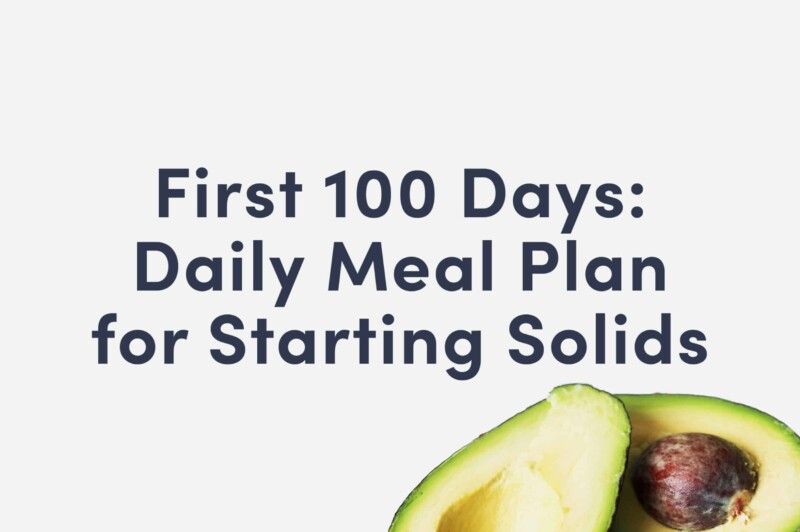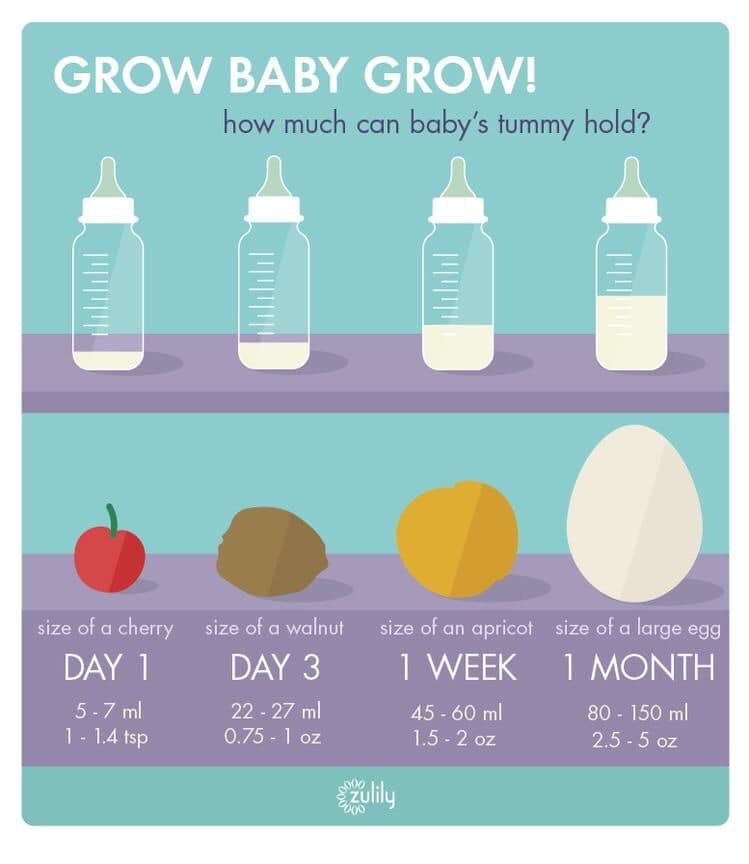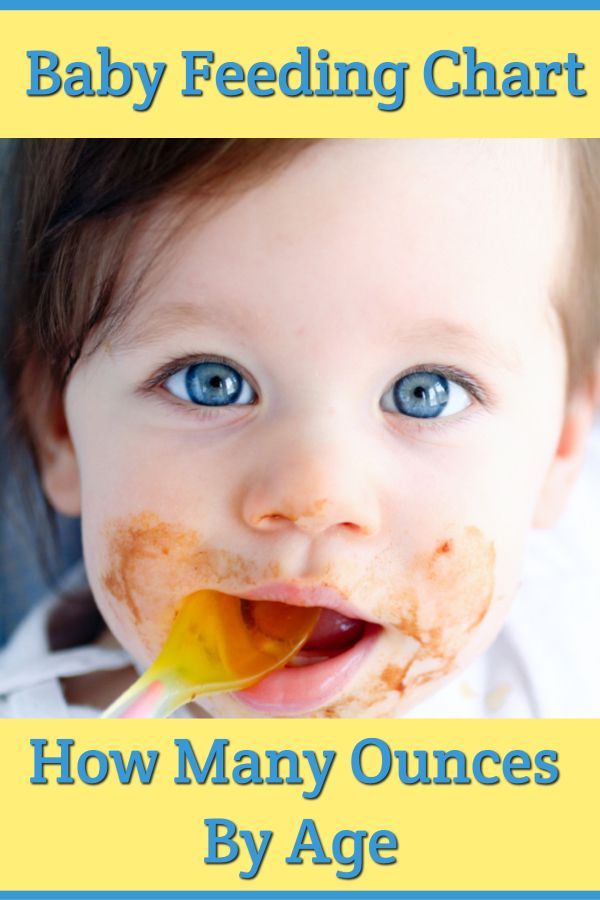Brain development food for 1 year baby
Baby brain food: 7 foods to fuel brain development
- Wellness
- Baby brain food: 7 foods to fuel brain development
By uclahealth • May 5, 2022
If you’ve ever spent time with a toddler, you probably know they learn quickly and absorb new information like a sponge. But brain development begins long before a child can walk and talk.
Brain cells multiply at an astonishing rate as a baby develops in the womb. The brain continues to grow during infancy as motor functions such as balance and coordination develop. During the toddler years (ages 1 to 3), the brain increases cognitive ability — how quickly a child can interpret and relay information to perform complex tasks.
During these periods of peak growth, nutrition plays an important role. For toddlers, not getting the right nutrients can have a detrimental impact on cognitive development — affecting memory, attention and academic ability later in life.
Key nutrients for baby brain developmentWhile all nutrients are important for brain growth and functioning, some play a bigger role in early brain development than others. The American Academy of Pediatrics Committee on Nutrition recommends certain nutrients for healthy brain development in toddlers:
- Choline
- Folate
- Iodine
- Iron
- Long-chain polyunsaturated fatty acids, such as omega-3 fatty acids
- Protein
- Vitamins A, D, B6 and B12
- Zinc
No one food or “superfood” can ensure optimal brain development for toddlers. But some foods are packed with a variety of the necessary nutrients. Just be sure to monitor all new foods to ensure there’s no potential allergy.
1. EggsEggs are nutritious and typically a crowd-pleaser for young children. Brain-boosting nutrients in eggs include choline, vitamin B12 and protein. Choline is especially important for normal brain development and can improve cognitive functioning. Two whole eggs a day provide the choline that children age 8 and younger need.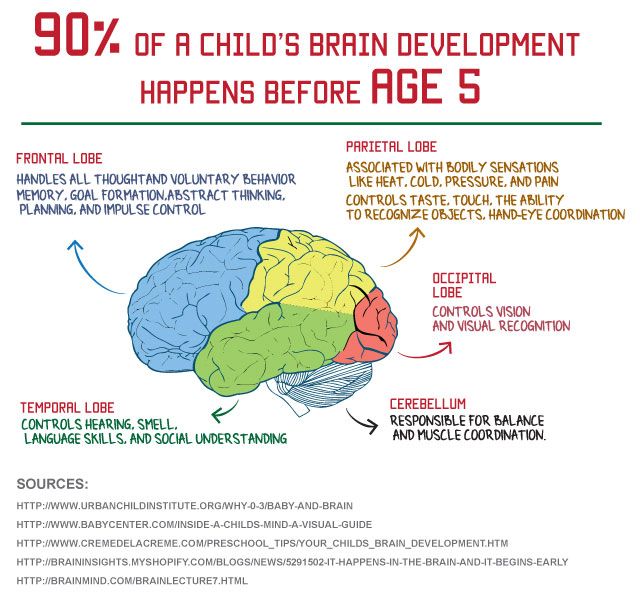
Oily fish and other seafood provide a lot of bang for the buck when it comes to brain development —protein, zinc, iron, choline, iodine and omega-3 fats. But avoid feeding your toddler seafood that is high in mercury such as tuna and swordfish. Too much mercury can have harmful effects on a child’s developing nervous system. Instead, opt for low-mercury options such as shrimp, salmon, tilapia, crab or cod. Children under age 3 can have a 1-ounce serving two to three times a week.
3. Leafy green vegetablesThere’s a reason that parents try to hide extra leafy greens, such as spinach and kale, in their children’s smoothies and pasta sauce: They’re a great source of iron and folate. Research shows that children who get enough folate tend to have better cognition than kids who don’t get enough. Iron plays an important role in the development of the hippocampus — the part of the brain responsible for learning and memory.
Lean beef qualifies as brain food because it is an excellent source of zinc and iron. Iron is especially vital for young children because they are more likely to experience anemia (low iron levels). Nearly one in 10 American children age 3 and younger has an iron deficiency, which can contribute to learning difficulties and attention deficit hyperactivity disorder (ADHD). Black bean or soy burgers work as great iron-containing burger substitutes.
5. YogurtUnsweetened yogurt is an easy, kid-friendly way to support brain growth. It contains nutrients such as protein, zinc, choline and iodine. Children need iodine to produce thyroid hormones, which are vital to brain development and neurological processes. Even mild iodine deficiency may affect a child’s overall cognitive function and ability to reason.
6. Nuts & seedsFood such as nuts, seeds and nut butters make a protein- and zinc-packed snack. Protein contributes to healthy brain growth and the development of long-term memory. Zinc also plays an important role during the toddler years, when the brain is growing rapidly. Insufficient amounts of zinc may affect your child’s cognitive development, impairing their memory and ability to learn.
Protein contributes to healthy brain growth and the development of long-term memory. Zinc also plays an important role during the toddler years, when the brain is growing rapidly. Insufficient amounts of zinc may affect your child’s cognitive development, impairing their memory and ability to learn.
Whole nuts and seeds can be a choking hazard, so try adding water to small amounts of peanut butter, or giving peanut-flavored “puff” snacks instead. Just make sure to choose puffs made from real peanuts with no artificial flavoring.
7. BeansBeans offer several beneficial nutrients for a developing brain including zinc, protein, iron, folate and choline. Some types of beans, such as kidney, pinto and soybeans, also contain high amounts of omega-3 fatty acids. For vegetarian children, the iron and protein in beans make them an excellent substitute for meat.
If you are concerned about your toddler’s diet or want more guidance about what your toddler should be eating, reach out to your child’s primary care physician.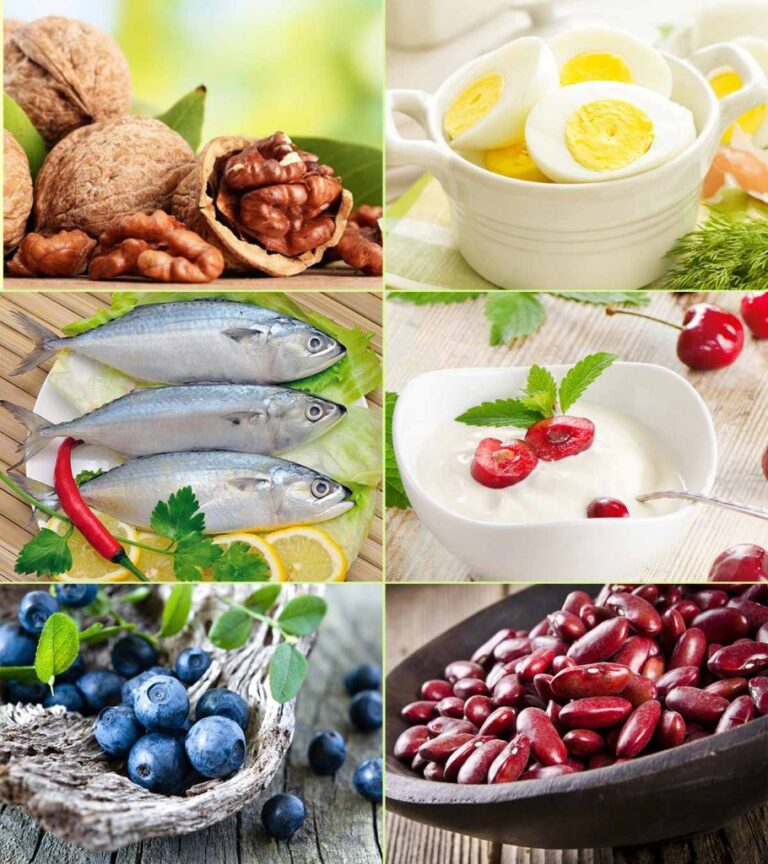
Tags: brain development, cognitive health, healthy foods, infants, nutrients, peanuts, seafood, toddler diet, toddlers, vegetables, Wellness
Related Posts
10 Foods to Build Baby's Brain Development
Has the time come to transition your baby into the world of solids? (Raise your hand if you're feeling excited.) Each baby's first experience with solids is different—some babies take to their first foods right away, while others require some trial and error. Allow your baby to sample a variety of healthy and nutritious foods, and let patience—and nutrition—be your guide, especially to support that growing brain.
Remember to not start solids until your baby is 6 months old (not 4 months, as used to be the case), and always check in with your child's pediatrician before starting solids, in case there are any specific considerations for your little one. Once you get the go-ahead, focus on foods that are rich in nutrients that support your baby's healthy growth.
1. Avocado
Creamy, mashed avocado is a popular first food. Avocado is a nutrient-dense fruit with plant-based fat, vitamins and minerals. Not only is it nutritious, as fats contribute to brain cell development, but the texture is soft and easy for baby to tolerate.
2. Greek yogurt
Whole-milk yogurt is a nutritious early food because it contains calcium, protein and healthy fats. The culturing process involved in making yogurt helps break down the proteins, making them easy for babies to digest, and incorporating fats into your baby's diet will help develop their brain cells. Plus, babies tend to like the rich, creamy texture of Greek yogurt. Because it contains cows' milk, some pediatricians recommend waiting to introduce yogurt between 9 and 10 months of age, so check with your child's doctor first.
Related: Everything you need for starting solids with your baby
3. Blueberries
Dark berries like blueberries are packed full of antioxidants, which protect the brain from stress and damage. You can offer blueberries mashed or blended into a smoothie, yogurt or oatmeal or as a finger food.
You can offer blueberries mashed or blended into a smoothie, yogurt or oatmeal or as a finger food.
4. Whole grain porridge
Offering your baby a whole-grain cereal blend is a nutrient-rich option. Whole grains such as oatmeal, quinoa and barley should be pulverized and blended into a fine powder form and mixed with water or breast milk. You can also mix in a bit of yogurt or a fruit/vegetable blend. Whole grains offer fiber and a source of protein.
5. Eggs
Egg yolks contain cholesterol, which is what comprises the outer lining of brain cells. In addition, they contain fat-soluble vitamins as well as choline, selenium and vitamin B12—all important for brain development.
Related: 5 ways to help your picky eater get the nutrition they need
6. Nut butters
Traditional nuts in their butter form are a good source of healthy fat, protein and fat-soluble vitamins. Peanut, cashew and almond butter are all options to offer your baby when you feel they're ready.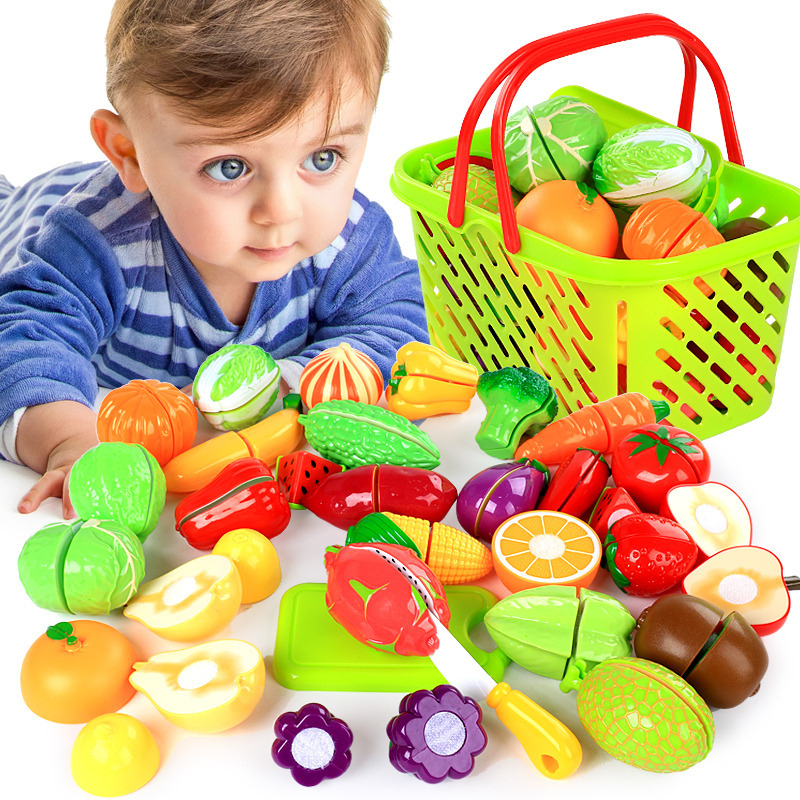
You could offer it as a small spoonful mixed into your baby's cereal or porridge blend, yogurt or even applesauce.
Note: According to recommendations from the American Academy of Allergy, Asthma and Immunology, highly allergenic foods like nuts can be introduced into infants' diets as early as 6 months of age—and should be introduced early and often, as research shows this tactic can actually prevent the development of food allergies down the line.
7. Apples
These nutritious fruits contain quercetin, which helps stimulate brain activity. Apples, whether pureed, cooked soft or raw, are easy to offer as a first food and throughout your baby's transitional food stages. (Check out this great applesauce recipe!) As they become more comfortable with finger foods and as they develop teeth, you could offer apples with nut butter as a healthy pairing.
8. Lentils
Lentils are available in various forms and are especially nutritious because they contain fiber, iron and protein. They're soft and easy to cook (no long soaking periods required) and can easily be blended into puree or soup form. They're also one of the more neutral-tasting legume and bean options to initially offer.
They're soft and easy to cook (no long soaking periods required) and can easily be blended into puree or soup form. They're also one of the more neutral-tasting legume and bean options to initially offer.
9. Leafy Greens
While these may be hard to offer initially as a single vegetable, they could be used as a blend so they're tolerated better. For example, you could blend spinach with apple or carrots, or make a spinach pesto to coat pasta once your little one is older. Because many leafy greens contain nitrates, some pediatricians recommended them as a later introduction at perhaps closer to 10 months onwards.
Leafy greens such as spinach or kale offer lutein and vitamin K, which contribute to brain activity.
10. Salmon
Babies' growing brains require DHA, an omega-3 fatty acid that is essential to cognitive development. Salmon is an excellent dietary source of DHA. You could mash some cooked, mix into a puree or even create a salmon burger or nuggets if finger foods are accepted.
A version of this post was originally published on Sept. 28. 2021. It has been updated.
"Smart" nutrition - Smart child - Aptaclub.ee
Yes, that's right - balanced and complete nutrition contributes to both the healthy development of the child's brain and its good functioning, activating concentration skills and memory, which have a beneficial effect on the general mental abilities of the child and his perception!
The child's brain develops most intensively before 3 years of age. The same applies to the immune system. Therefore, in this age period (starting from 6 months, when complementary foods are added to mother's milk), parents should try to ensure that the baby receives the nutrition necessary for its development. Let's try to figure out which nutrients are important at this stage, what their functions are, and how they affect the physical and spiritual health of the baby.
Nutrition and its impact on the development and functioning of the baby's brain
While mommy feeds the baby with her milk, the baby receives all the necessary nutrients and vitamins, as well as substances that strengthen the immune system and contribute to the successful development and functioning of the baby's brain.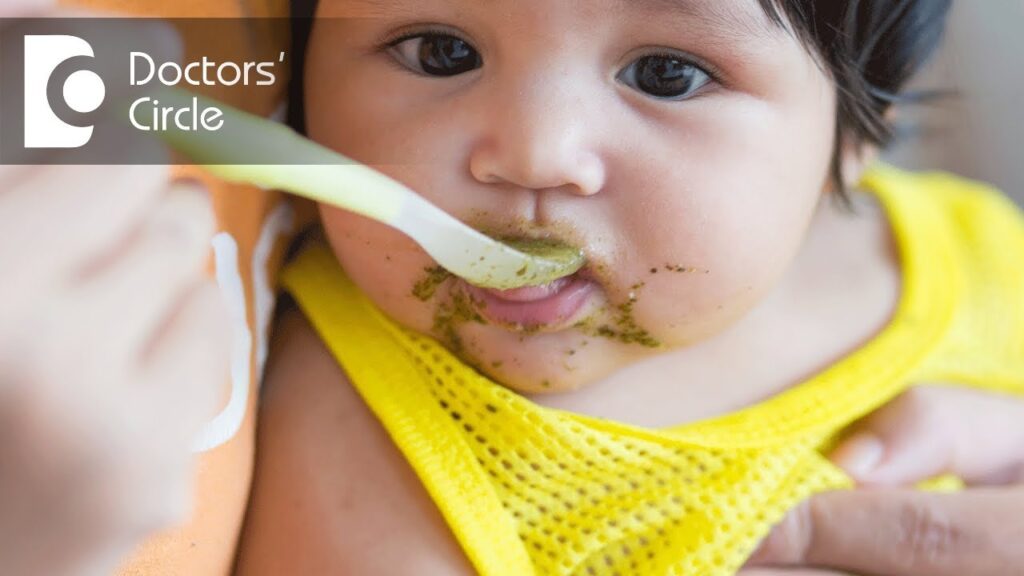 But when the complementary feeding period begins, it is important to pay attention to whether the child is getting the necessary nutrients from food. It must also be understood that the child's menu is different from the adult's menu. A balanced diet with the right proportions of nutrients and vitamins is of great importance for a child to grow up not only physically strong, with a good immune system, but also have a stable nervous system, good memory and ability to concentrate. This will further affect school success and overall health.
But when the complementary feeding period begins, it is important to pay attention to whether the child is getting the necessary nutrients from food. It must also be understood that the child's menu is different from the adult's menu. A balanced diet with the right proportions of nutrients and vitamins is of great importance for a child to grow up not only physically strong, with a good immune system, but also have a stable nervous system, good memory and ability to concentrate. This will further affect school success and overall health.
Especially important iron - it is necessary for blood circulation, which, in turn, contributes to the development of the baby's brain and provides energy. It supplies tissues with oxygen, therefore it is involved in the formation of bone tissue, teeth and in the activity of the immune system. The more the body develops, the more iron it needs. It is best obtained from lean meats. Remember that calcium prevents the absorption of iron, but vitamin C enhances it. Therefore, foods containing iron are best eaten with fresh vegetables and fruits.
Therefore, foods containing iron are best eaten with fresh vegetables and fruits.
If the baby is given mashed vegetables, it is advisable to start with tender vegetables, such as zucchini, pumpkin, carrots, cauliflower, and then supplement the menu with other vegetables - broccoli (which is the richest source of iron), spinach, paprika, eggplant, etc. These vegetables are also powerful antioxidants that can repair damaged cells. Sources of iron also include lean meats and some legumes (beans, peas), which improve brain function. In the menu of a small child (from 8 months old), it is advisable to include, first of all, tender meat - rabbit, turkey, chicken or veal (if the child does not have intolerance or allergies). The meat is best boiled or stewed, and then chopped in a blender.
B vitamins - are involved in the development of the nervous system and the formation of the protective membranes of the nerves. These vitamins are mainly involved in the work of the muscular and nervous systems, especially B12 and folic acid, which promotes cell repair.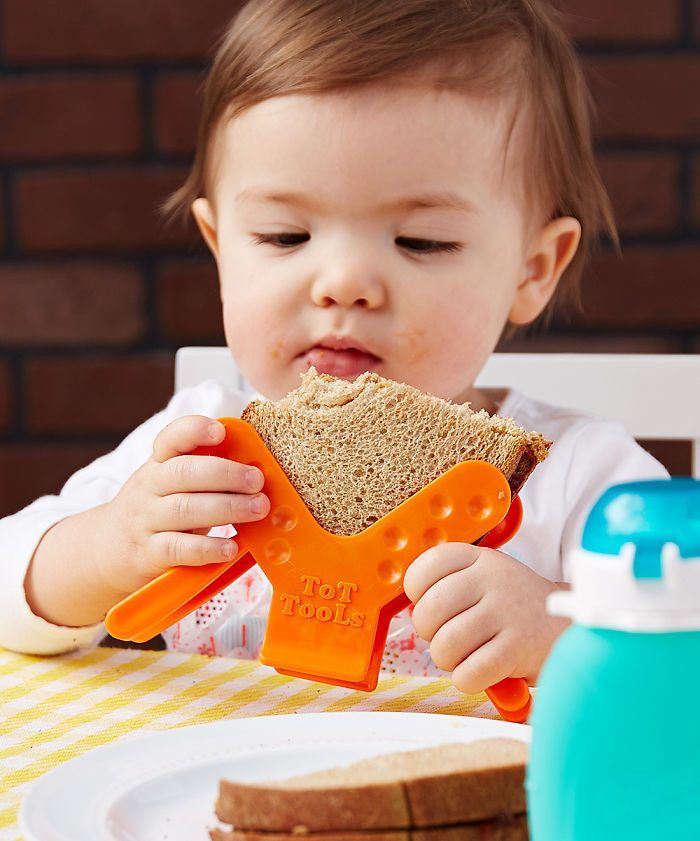 Therefore, B vitamins are an integral part of the child's growth process. They also contribute to the formation of red blood cells in the body and strengthen the immune system.
Therefore, B vitamins are an integral part of the child's growth process. They also contribute to the formation of red blood cells in the body and strengthen the immune system.
Dairy products are rich in proteins and B vitamins, which are important for the development and growth of brain tissue. Recommended foods are yogurt without additives, not too fatty sour cream, cheese, kefir (there is an opinion that cow's milk should not be given to a child under 3 years old, as it can cause an allergic reaction), as well as cereals. Vitamin B6 is found in all types of meat, as well as vegetables and fruits. For example, one banana contains most of the vitamin B6 needed throughout the day. Interestingly, the composition of the egg includes almost all B vitamins, unsaturated fatty acids, as well as the element choline, which improves memory. Less allergenic and more suitable in size for a small child will be quail eggs.
Carbohydrates - an essential part of them is glucose, which supplies the brain with energy resources. Within one minute, 100 g of the brain consumes up to 5 mg of glucose, the main substrate for respiration of brain tissues. It is interesting that, first of all, the energy of glucose is used precisely for the work of the brain, the rest of the functions in this case are secondary. Carbohydrates are an integral part of the blood, muscles, nerves and other tissues of the body. Therefore, an actively growing organism, especially in the first 3 years, they are especially necessary.
Within one minute, 100 g of the brain consumes up to 5 mg of glucose, the main substrate for respiration of brain tissues. It is interesting that, first of all, the energy of glucose is used precisely for the work of the brain, the rest of the functions in this case are secondary. Carbohydrates are an integral part of the blood, muscles, nerves and other tissues of the body. Therefore, an actively growing organism, especially in the first 3 years, they are especially necessary.
Carbohydrates are one of the most important nutrients in the first years of life, when the development of the baby is especially rapid. The richest source of carbohydrates are cereals (except for them, of course, fruits, berries and dairy products), since they provide the body, including the brain, with “fast” energy. Therefore, porridges from cereals are recommended, starting with rice, ending with porridges from other types of cereals. Important! You should find out if the baby has an allergic reaction to nutrients such as gluten (a protein found in grains of wheat, rye, barley and oats).
Fats - they make up 60% of brain tissues. Fats are extremely important for the formation of the nervous system. Thanks to them, for example, nerve cells can grow. Fats are divided into saturated and unsaturated fatty acids. Among polyunsaturated fatty acids, the most important for nerve tissues are ALA (alpha-linolenic acid), EPA (eicosapentaenoic acid), DHA (docosahexaenoic acid), omega-3 and omega-6 fatty acids, which contribute to the full development of nerve cells, retina, heart and brain and boost the immune system.
Considering the need of a rapidly growing body for energy, up to 3 years of age, a very large amount of fat should be included in the diet of a child. This is necessary so that the brain can develop normally, as well as for the good functioning of the hormonal system. The required amount of fatty acids can be obtained from oily sea fish, such as steamed (in a double boiler) salmon, since it contains the omega-3 acids that the body needs, which improve the cognitive function of the brain. It is also good to include white fish, such as cod fillet, in the diet of a small child. If a child refuses fish, it is worth considering the use of fish oil. It is desirable to supplement the diet with vegetable oils, for example, olive and rapeseed. It is worth remembering that the seeds of raspberries, strawberries, blackberries and strawberries are also rich in omega-3 fatty acids, and strawberries and blueberries can improve memory.
It is also good to include white fish, such as cod fillet, in the diet of a small child. If a child refuses fish, it is worth considering the use of fish oil. It is desirable to supplement the diet with vegetable oils, for example, olive and rapeseed. It is worth remembering that the seeds of raspberries, strawberries, blackberries and strawberries are also rich in omega-3 fatty acids, and strawberries and blueberries can improve memory.
What else should be considered?
In order for the child's brain to receive all the necessary nutrients and develop normally, the child's menu must be appropriate for his age and state of health. Gradually including new products in the menu, care should be taken to ensure that the child does not develop allergic reactions, therefore it is necessary to control the content of salt and sugar in the child's food. Nutrition should be healthy, balanced, varied and, of course, tasty.
Often, allergic reactions in children do not come from any particular vegetable or fruit, but from the chemicals they are treated with. Therefore, it is recommended to choose, if possible, more environmentally friendly products, ideally grown on their own. Therefore, products that may contain preservatives, flavorings and colorings should be avoided.
Therefore, it is recommended to choose, if possible, more environmentally friendly products, ideally grown on their own. Therefore, products that may contain preservatives, flavorings and colorings should be avoided.
Not only the food itself is important, but also the way it is cooked (steaming, boiling or frying). As you know, if processed incorrectly, if boiled or fried for too long, important nutrients disappear, and the food becomes of little value. A small child should take a large amount of fluid daily. It can be not only water, but also fresh fruit and vegetable juices, herbal teas, etc.
Consult your family doctor or paediatrician about the nutrition your child needs, given their age!
The ABC of feeding babies aged 1 to 3 years
The basics of healthy nutrition are mastered in the family. Slow conversations at dinner create a feeling of togetherness, joint...
DETAILS
The role of milk in the nutrition of children after a year
Good nutrition is no less important for the development of your baby than physical and mental activities.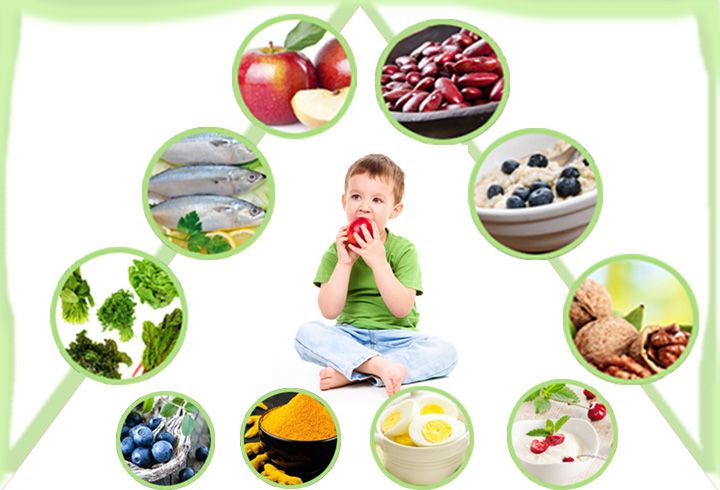 'Cause aged...
'Cause aged...
DETAILS
Why is self-cooked food good?
Health starts at home. In an ideal world, we would all have plenty of time to plan our menu and cook for...
DETAILS
Why it is important to teach your baby to a varied diet
Good health should be taken care of from an early age. Eating habits acquired by the child...
DETAILS
Russian Union of Pediatricians
Nutrition for children aged 1 to 3 years
The period from 1 to 3 years of life is a crucial stage in the transition to an adult type of nutrition, which has certain features. In order to ensure that all the necessary nutrients enter the child's body and at the same time prevent an excess of individual nutrients, nutrition should be balanced and varied.
The daily amount of food for children aged 1 to 1. 5 years should be 1000-1200 g, from 1.5 to 3 years - 1200-1500 g, the amount of food in one feeding should not exceed 300-350 ml. The diet consists of three main meals per day and two snacks. It is considered optimal when breakfast is 25% of the total energy density of the diet, lunch is 30–35%, dinner is 20%, and additional meals are about 10%. In general, the child can eat the same food as the rest of the family.
5 years should be 1000-1200 g, from 1.5 to 3 years - 1200-1500 g, the amount of food in one feeding should not exceed 300-350 ml. The diet consists of three main meals per day and two snacks. It is considered optimal when breakfast is 25% of the total energy density of the diet, lunch is 30–35%, dinner is 20%, and additional meals are about 10%. In general, the child can eat the same food as the rest of the family.
In the diet of a child of 1-3 years of age must be present daily : animal or poultry meat, dairy and sour-milk products, vegetables, fruits, bread, cereals, vegetable and butter; fish and eggs are included in the diet 2-3 times a week.
Cereal products: bread - 2-3 servings per day, cereals and side dishes - 1 time per day
Fruit and/or vegetables: at least 5 times a day
Dairy products: at least 3 servings per day (including those used to make cereals, yoghurts, fermented milk drinks, cottage cheese, infant formula or breast milk).
Domestic pediatricians recommend, when compiling a diet for children aged 1–3 years, preference should be given to specialized children's dairy products of industrial production that meet high quality requirements and safety indicators for this age.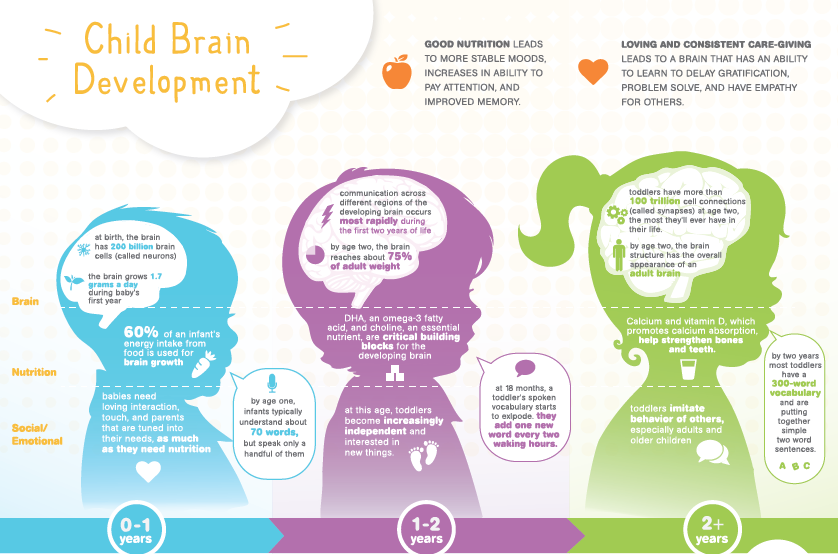 Most children's dairy products are additionally enriched with vitamins and/or minerals and other biologically active components, taking into account the physiological needs of children of this age. At the same time, in foreign recommendations, children over 1 year old are offered the gradual introduction of whole cow's milk, which is rich in fats necessary for proper growth and development, the absorption of vitamins A and D, the development of the child's brain and nervous system.
Most children's dairy products are additionally enriched with vitamins and/or minerals and other biologically active components, taking into account the physiological needs of children of this age. At the same time, in foreign recommendations, children over 1 year old are offered the gradual introduction of whole cow's milk, which is rich in fats necessary for proper growth and development, the absorption of vitamins A and D, the development of the child's brain and nervous system.
Meat dishes: 2-3 times a day
Fish dishes: 2-3 servings per week
Eggs: 2-3 per week
Dietary fats: 3-4 teaspoons of butter and/or vegetable oils per day
When cooking, use the minimum amount of salt and sugar, and do not add them to industrial products.
Offer your child a variety of foods and let them choose for themselves. Children love to eat on their own, so if possible, offer food that the child can eat with their hands.
It is important to remember that a baby can choke on pieces of food, so whatever you give your baby should be crushed or cut into small pieces that can be easily chewed.

